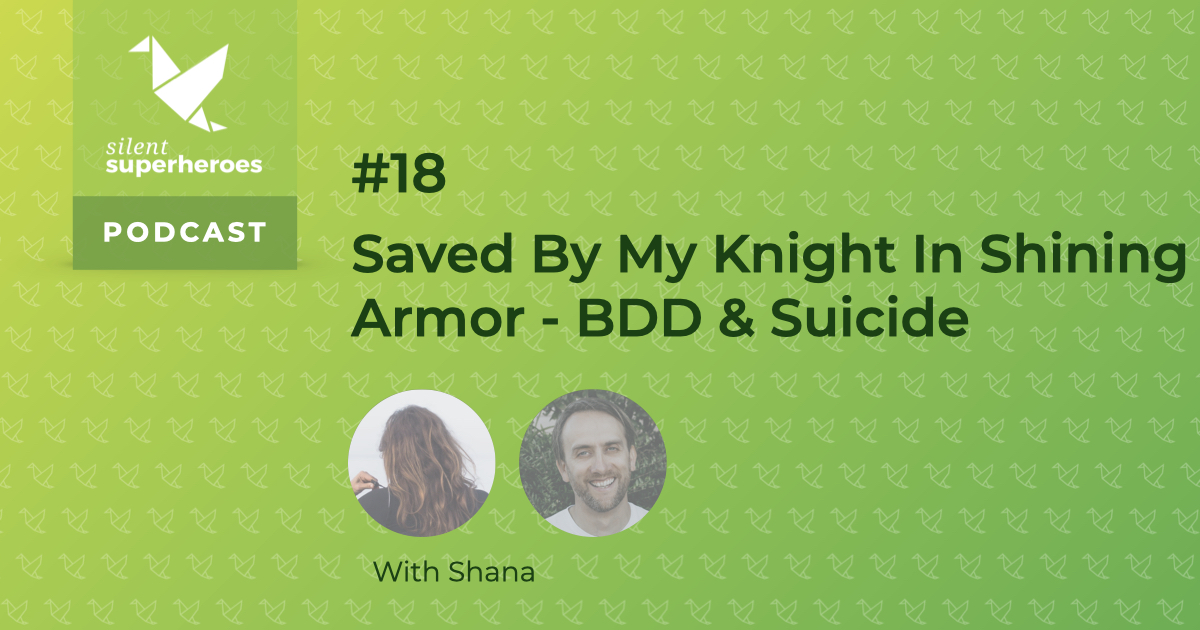“I remember doing it, and I remember making the conscious effort. But it really wasn’t me … but it was me. It’s a really hard thing to explain.”
Listen To Episode 18
Podcast: Play in new window | Download (Duration: 38:29 — 21.1MB)
Show Notes
That was Shana, describing what she was feeling just after swallowing handfuls of pills during a suicide attempt. Shana was the Silent Superhero featured in episode 17, where she shared her experience living and working with PTSD and OCD. In this episode, we pick up Shana’s story and get into her experience of Body Dysmorphic Disorder (BDD). She also talks about how she tried to end her life, what that felt like and how Richard from episode 5 became her knight in shining armor.
About Body Dysmorphic Disorder
Body dysmorphic disorder is a mental health disorder in which you can’t stop thinking about one or more perceived defects or flaws in your appearance — a flaw that appears minor or can’t be seen by others. But you may feel so embarrassed, ashamed and anxious that you may avoid many social situations.
When you have body dysmorphic disorder, you intensely focus on your appearance and body image, repeatedly checking the mirror, grooming or seeking reassurance, sometimes for many hours each day. Your perceived flaw and the repetitive behaviors cause you significant distress, and impact your ability to function in your daily life.
You may seek out numerous cosmetic procedures to try to “fix” your perceived flaw. Afterward, you may feel temporary satisfaction or a reduction in your distress, but often the anxiety returns and you may resume searching for other ways to fix your perceived flaw.
Treatment of body dysmorphic disorder may include cognitive behavioral therapy and medication.
Getting Support
Remember, the people you hear on Silent Superheroes are sharing their opinions about mental health and mental illness. They are not giving advice. For that reason, please consult with your care provider before making a change to your treatment approach.
It’s important to take your mental health seriously. Consequently, if you need to speak to someone you can call 1-800-273-8255, or text crisistextline.org on 741741. Both provide 24×7 confidential counseling to people in the United States. Worldwide visit http://iasp.info/resources/Crisis_Centres/
Because you listened to the podcast, you can help others find it by leaving us a review on iTunes. Or if you don’t use iTunes, leave a review on your favorite podcasting service.



Interesting to get away from the workplace for this very frank discussion.